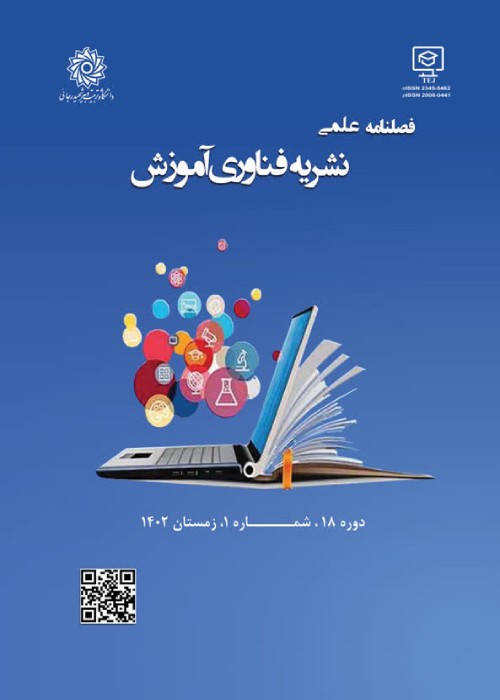Design and Validation of quality improvement model of virtual learning in Farhangian University (mixed method)
Higher education administrators are looking for ways to increase the number of courses and disciplines. While university budgets are steadily declining, they are forced to increase their distance learning courses to meet the growing needs of learners during budget constraints and recessions. Because this type of training does not require a classroom and the nees less full-time instructors. Over the past two decades, the issue of quality and excellence in universities and higher education institutions has become one of the most important issues in the field of higher education, and especially in the newly-establisehd Farhangian University. National evaluation systems are designed to evaluate teaching and learning programs in universities; and they have attracted atttention at the international level in higher education research, and interest in improving education, both nationally and internationally has increased. An increasing number of universities in Iran have started virtual education courses. Farhangian University has also provided a good platform for these trainings, but so far it has not been able to institutionalize a proper and comprehensive quality education. Therefore, due to the fact that the quantitative growth of virtual education is progressing, yet no improvement has been made in the quality of education, the researchers have taken a step towards responding to these challenges and filling the gap in research literature of the field. The purpose of this study is to design and validate a quality improvement virtual learning model using a mixed method.
In the quantitative section, 608 students and professors were using stratified random sampling method. In the qualitative section, 18 professors were interviewed. The quantitative data was analyzed using descriptive methods and the grounded theory was used for the analysis of the qualitative data. The data analysis was based on open and pivoted coding. Finally, 14 main categories including quality improvement of virtual education at the University of Farhangian were investigated as strategies, background conditions, intervening conditions and outcomes.
Results suggested that learning-educating activities and human actors had a positive and significant effect on improving quality and deployment strategies. Moreover, deployment strategies exerted a positive and significant impact on quality improvement. Background features also affected deployment strategies and quality improvement in a positive and significant way. The effect of deployment strategies and quality improvement on individual, organizational and transactional outcomes was also significant.
Considering the position of Farhangian University in the present models, the fair distribution of knowledge and ignorance of instructors’ character and the positive effect of recruiting distinguished instructors are emphasized in the results section. In causes section, in discussing strategies centralized decision making is referred to; and in strategy section, development of trust making and culture building for virtual learning is referred to that includes using the experiences of other countries. In intervening conditions section, using Web 2 and Web 3, prior knowledge of learners and the combination of face-to-face and virtual education at Farhangian University are mentioned.
- حق عضویت دریافتی صرف حمایت از نشریات عضو و نگهداری، تکمیل و توسعه مگیران میشود.
- پرداخت حق اشتراک و دانلود مقالات اجازه بازنشر آن در سایر رسانههای چاپی و دیجیتال را به کاربر نمیدهد.


